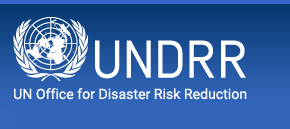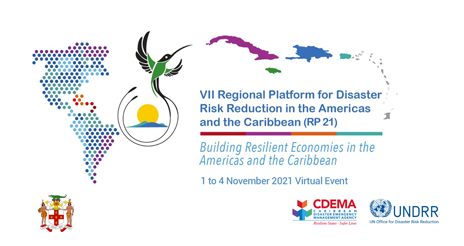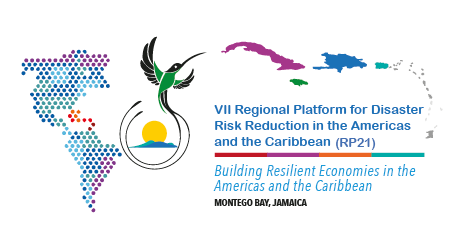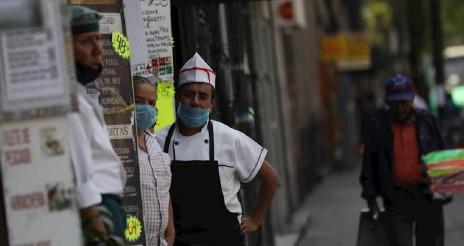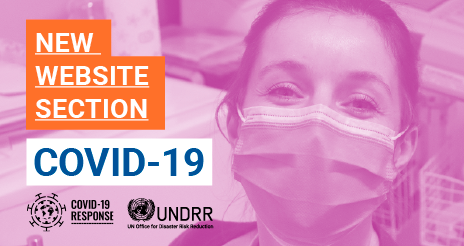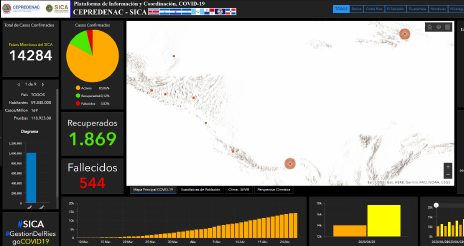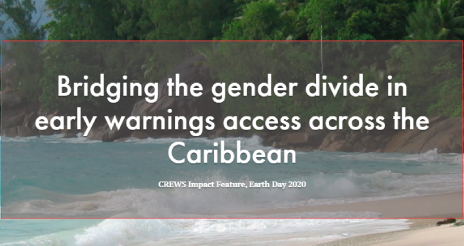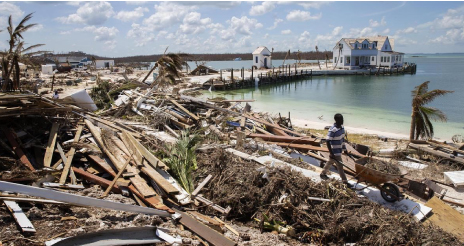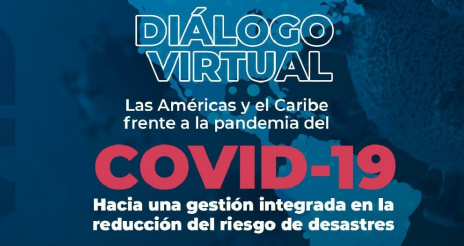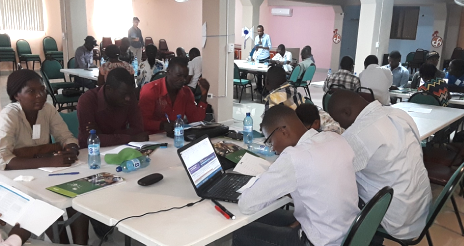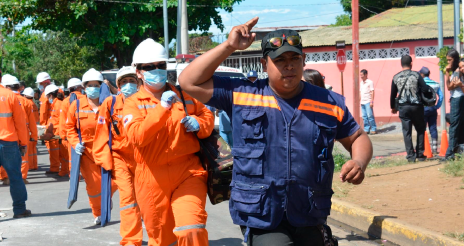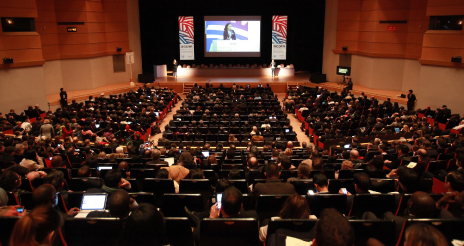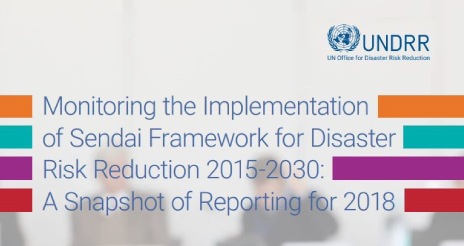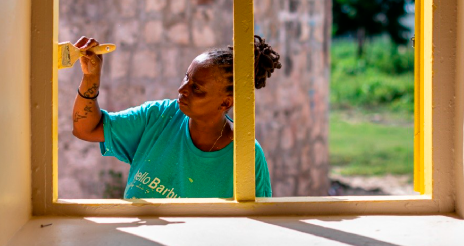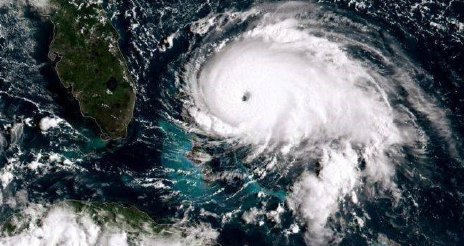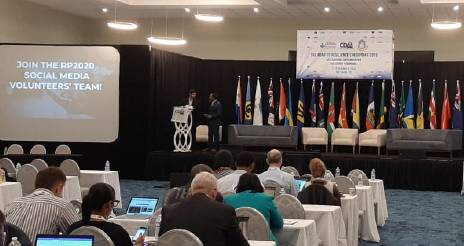| Title |
Date |
The Government of Jamaica, the United Nations Office for Disaster Risk Reduction (UNDRR) - Regional Office for the Americas and the Caribbean, and the Caribbean Disaster Emergency Management Agency (CDEMA) are pleased to announce that the VII Regional Platform for Disaster Risk Reduction in the Americas and the Caribbean (RP21) will take place virtually during the week of 1 to 4 of November 2021.
The event was postponed from its original date in July 2020 due to the COVID-19 pandemic, and in recognition of the attention the emergency demanded from the institutions and governments involved in the organization as well as from participants of the Regional Platform.
The webpage of the Regional Platform will soon be updated and will contain all relevant announcements and up to date information on the event henceforward.
For more information, please contact the Organizing Committee at rp2020jamaica@mlgcd.gov.jm andrpa@eird.org .
|
06 May 2021 |
The Government of Jamaica, the United Nations Office for Disaster Risk Reduction (UNDRR) - Regional Office for the Americas and the Caribbean, and the Caribbean Disaster Emergency Management Agency (CDEMA) are pleased to announce that the VII Regional Platform for Disaster Risk Reduction in the Americas and the Caribbean will be held next year in 2021.
|
22 Jul 2020 |
As a result of the impact and uncertainty created by the spread of COVID-19, the Government of Jamaica, the United Nations Office for Disaster Risk Reduction (UNDRR) and the Caribbean Disaster Emergency Management Agency (CDEMA) have decided to postpone the VII Regional Platform for Disaster Risk Reduction in the Americas and the Caribbean, originally scheduled to be held in Montego Bay in July 2020. Options to reschedule the event at a more suitable time are currently being considered.
|
25 March 2020 |
The COVID-19 pandemic has dealt a harsh blow to businesses in Latin America and the Caribbean but the private sector has a vital role to play in helping people recover from the crisis and adapt to the new normality, said industry experts. Implementing disaster risk reduction plans will be top of the list for many companies as they look to rebuild their customer bases, supply chains and distribution networks in the wake of the crisis, which has forced many to shed staff and others into bankruptcy.
|
07 May 2020 |
Even before the world brings the COVID-19 disaster under control, we will all be demanding: "Never again." We can never go back to business as usual. The current COVID-19 disaster demonstrates that which UNDRR outlined in the Global Assessment on Risk 2019: risk is systemic, and crises are cascading. Disasters are rapidly producing further disaster to become more complex and deadly. Everyone is affected, but not everyone is affected equally. The elderly, people living with disabilities, gig workers and the poor and marginalised are most vulnerable. The only solution is prevention. Prevention saves lives. This is why UNDRR, working with the UN system and other partners, is working to include risk in all development action to make sure hazards of all kinds - including pandemics - do not become disasters.
|
05 May 2020 |
As the COVID-19 pandemic continues with a steady pass in the region, the Coordination Center for the Prevention of Disasters in Central America and the Dominican Republic (CEPREDENAC) has launched the 'SICA COVID-19 Information and Coordination Platform', focused on enhancing the availability of up-to-date information for decision-making in the region.
|
28 April 2020 |
The Caribbean is the second most hazard-prone region in the world, and has experienced repeated losses from hurricanes and associated wind, rain and storm surge damage. Climate change is now causing an increase in the frequency and force of severe weather events, creating more dangerous threats to the lives and livelihoods of the region's more than 43 million inhabitants. In 2017, an unprecedented series of no less than five major hurricanes devastated the region. This has been followed by at least one Category 5 hurricane every year since, including Hurricane Dorian in September 2019, which hit with sustained winds of 285 kilometres per hour.
|
23 April 2020 |
The chance of a deadly Caribbean hurricane clashing with the peak of the COVID-19 pandemic remains slim but many countries are bracing for a two-tier crisis as they grapple with complicated logistics, limited resources and scant supplies. Training rescuers, increasing medical capacity and sourcing protective equipment are among the major challenges for the Caribbean, where a sharp drop-off in tourism and trade has dealt a heavy blow to many cash-strapped countries.
|
22 April 2020 |
Three Haitians cities participated in a workshop offered in 2019 by Goal Haiti and UNDRR's regional office for the Americas and the Caribbean. It was an opportunity to assess their resilience to disasters, convey different stakeholders and promote a dialogue on the relevance of preparedness and resilient thinking at local level.
|
15 April 2020 |
Three Haitians cities participated in a workshop offered in 2019 by Goal Haiti and UNDRR's regional office for the Americas and the Caribbean. It was an opportunity to assess their resilience to disasters, convey different stakeholders and promote a dialogue on the relevance of preparedness and resilient thinking at local level.
|
04 April 2020 |
The Covid-19 pandemic crisis has shaken the entire world. Not only in terms of health do we require exponentially increasing resources to guarantee a minimum of attention and care, but state apparatuses have begun to operate as blocks, intensifying intersectoral work to ensure that all possible scenarios stemming from the health crisis are covered.
|
02 April 2020 |
Those seated at the main table expressed joy and satisfaction on a cool midday in Sendai, Japan, when 187 member countries of the United Nations came together to adopt a new guiding framework for disaster risk reduction. Upon signing, these states ratified a commitment to create public policies to reduce and prevent disasters in partnership with the private sector.
|
20 March 2020 |
A UN effort to improve reporting on disaster losses by UN member States has been made public today to mark the 5th anniversary of the adoption of the Sendai Framework for Disaster Risk Reduction at a UN World Conference in Sendai, Japan, on March 18, 2015. The Sendai Framework is the most comprehensive plan ever adopted by UN Member States to reduce disaster losses. It applies to both man-made and natural hazards including related technological, environmental and biological hazards such as the COVID-19 pandemic.
|
18 March 2020 |
Alert systems designed to warn Caribbean communities of approaching hazards should be better tailored to reach women who are most likely to be impacted, said delegates at last December's Comprehensive Disasters Management conference held in Saint Maarten. In St. Lucia, factoring gender into early warning systems (EWS) was key, given poor, women-headed households were more likely to be living in inadequate and vulnerable homes, said Andrew George, programme development officer at the country's National Disaster Office.
|
09 March 2020 |
Menaced by increasingly violent hurricanes, Caribbean countries face an enormous bill to better protect themselves disasters and need to weave a web of financing options to help insulate against shocks, said speakers at a regional conference.
|
03 Jan 2020 |
Rolling out early warning systems, boosting community resilience and better protecting economies and livelihoods in the Caribbean topped the agenda at the Comprehensive Disaster Management conference in Sint Maarten as the region grapples with the growing impact of climate change.
|
![]()
![]()
![]()
![]()
![]()
![]()
 Now we have twitter account @UNDRR Américas y el Caribe
Now we have twitter account @UNDRR Américas y el Caribe